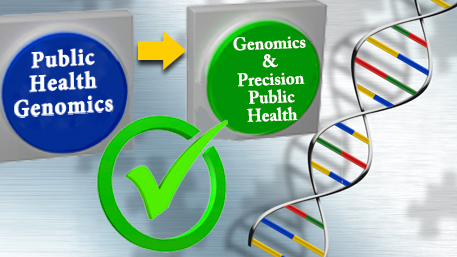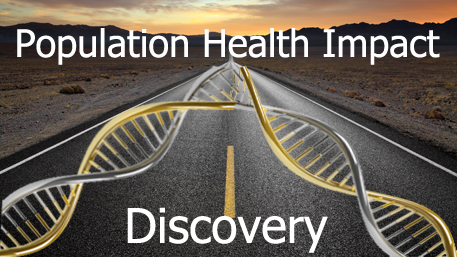Genomics and Precision Health Blog – Archive Posts
Public Health Perspectives on Ensuring Life Long Benefits of Newborn Screening

This blog post is a summary of a Perspective recently published in Pediatrics that was authored by Alex Kemper of Nationwide Children’s Hospital, Jeffrey Brosco of the Miller School of Medicine, University of Miami, and Coleen Boyle and Scott Grosse of CDC’s National Center on Birth Defects and Developmental Disabilities. Newborn screening is a highly Read More >
Posted on byMany Adults with Familial Hypercholesterolemia Are Not Meeting Goal LDL-Cholesterol Level

People with the genetic disorder familial hypercholesterolemia (FH) have increased blood levels of low-density lipoprotein (LDL) cholesterol, which increases their risk for developing coronary artery disease or having a heart attack. A recent study using data from the FH Foundation’s CASCADE FH Registry suggests that many individuals with FH are not meeting blood LDL-cholesterol level Read More >
Posted on byWhat’s the “value” of exome sequencing in children with neurodevelopmental disorders?

This is a summary of a recent commentary in Genetics in Medicine by Grosse and Rasmussen. Exome sequencing (ES) is increasingly used as part of the genetics evaluation of neurodevelopmental disorders, and acute illness in newborns of suspected genetic origin, among others. However, barriers to the clinical use of ES include a widespread reluctance of insurers Read More >
Posted on byCan a Healthy Lifestyle Reduce Your Risk of Dementia Regardless of Your Genes? – Part II

A new, long term cohort study suggests that healthy lifestyle is associated with a lower risk for dementia among people considered at lower and intermediate genetic risk but not for those considered at high genetic risk. “Globally, about 47 million people were living with dementia in 2015, and this number is projected to triple by Read More >
Posted on byCan an Aspirin a Day Prevent Colorectal Cancer in People with Lynch Syndrome?

Encouraging news for group at much greater risk of CRC Lynch syndrome (LS) is the most common cause of hereditary colorectal (colon) cancer (CRC). People with LS have a 50-70% risk of developing CRC in their lifetimes – far higher than the 4% risk within the general population where CRC is a leading cause of Read More >
Posted on byIntroducing the CDC Office of Genomics and Precision Public Health: What’s in a Name?

Starting this week, the CDC Office of Public Health Genomics will be renamed the CDC Office of Genomics and Precision Public Health. In many ways, this transition has been a few years in the making and reflects the continuous broadening of our scope from human genomics and public health to include other areas relevant to Read More >
Posted on byData Science and Machine Learning in Public Health: Promises and Challenges

In August 2019, two of us (CJP, DR) visited the Centers for Disease Control and Prevention and gave a seminar on the promises and challenges of using “big data” for “precision public health” using the tools of “data science”. The seminar was well attended, with more than 200 participants. The audience was engaged, asking great Read More >
Posted on byGenetic Counseling and Public Health in the Era of Precision Medicine

In August 2019, the All of Us Research Program announced the funding of a nationwide resource to provide genetic counseling support to one or more million participants in the precision medicine cohort in the United States. Participants from diverse populations will share health information over time through surveys and electronic health records, and they will Read More >
Posted on by 1 CommentImplementation science and genomic medicine in action: A case study

There is an urgent need for researchers and implementers of genomic medicine to incorporate implementation science into their translational research efforts. Implementation science is the study of methods to promote the adoption and integration of evidence-based practices, interventions, and policies into routine healthcare and public health settings to improve our impact on population health. But Read More >
Posted on byPrecision Medicine Update: Important Progress on the Long Road from Discovery to Population Health Impact

Impressive Pace and Potential The All of Us Research Program is an ambitious United States initiative launched in 2015 to collect health-related information on one million or more volunteers from diverse communities. A recent paper in the New England Journal of Medicine described progress and lays out the vision for the initiative moving forward. As Read More >
Posted on by

